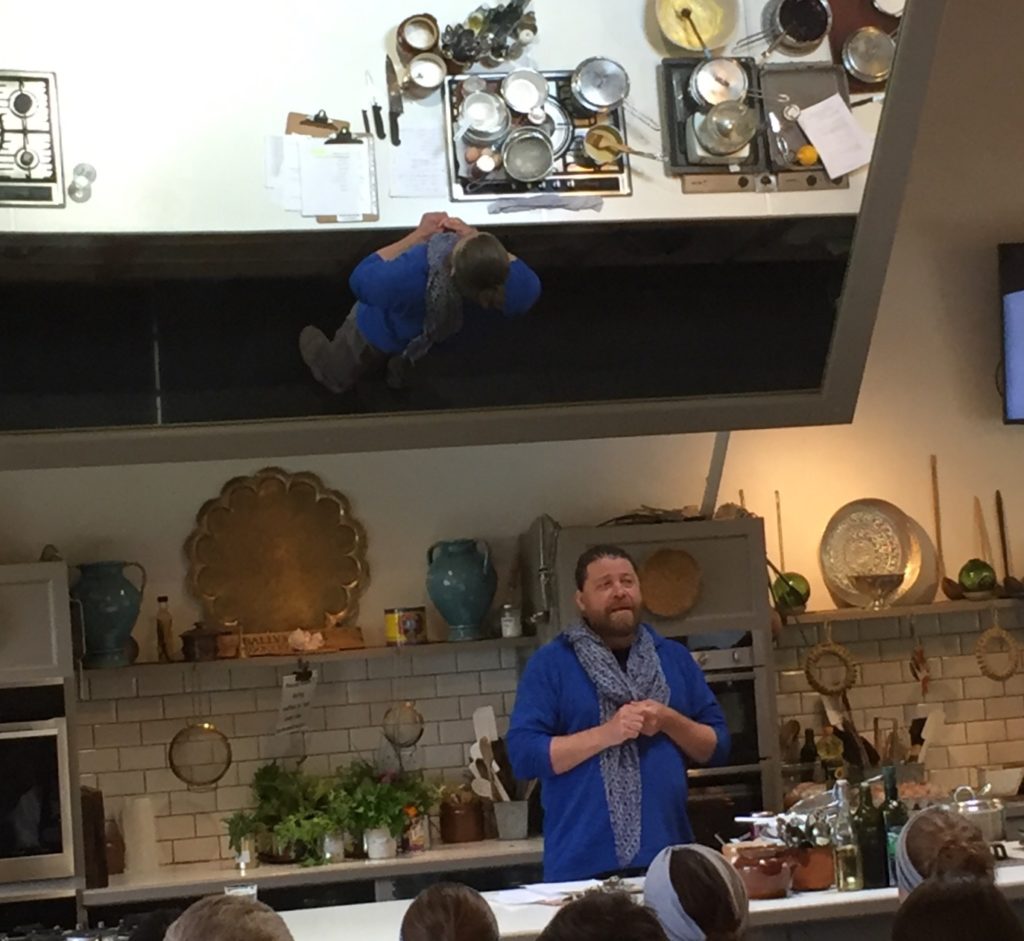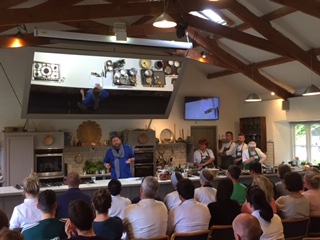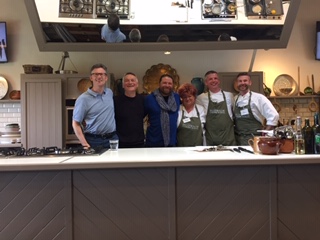17th May 2019

We were delighted to welcome John Wurdeman of Pheasant’s Tears, Georgia with Pascal Rossignol of Le Caveau
John spoke to the 12 week certificate cookery course students about the amazing culture, heritage, food and wine of Georgia.
During the wine classes of the 12week certificate cookery course we tasted Pheasants Tears Rkatsiteli – fermented naturally for thirty days with wild yeasts in clay Georgian qvevri buried underground. A ‘skin contact’ / ‘amber’ / ‘orange’ wine – a white wine made in contact with its grape skins. “Golden amber in the glass with a nose of wild honey, but dry, and unexpectedly, full-bodied in the mouth with background notes of walnut and apricot†Le Caveau
Qvevri were the first vessels ever to be used for wine fermentation, with archaeological finds dating back to 6000 BC. Qvevri are clay vessels lined with beeswax and completely buried under the ground where the temperature stays even throughout the year, allowing the wines to ferment in the natural coolness of the earth. Pheasant’s Tears qvevri vary in age but some date back to the mid 19th century. The cellar is built in the vineyard itself to minimize the damage to the grapes in transportation, allowing harvesting and process before the heat of the day takes effect. In accordance with Georgian traditional winemaking methods, the ripest of stems are added to the grape skins, juice and pits, for both reds and whites. The maceration time depends on varietal and the size of the qvevri and varies between 3 weeks and 6 months.
Pheasant’s Tears estate vineyard plantings flow down the slopes of the eastern Georgian Kiziqi province overlooking the Alazani Valley and snow-capped Caucasus Mountains. The site itself is located near the village of Tibaani in the shadow of the 6th century monastery of St. Stephen. Winemaker Gela Patalashvili who grew up in a farming family learning from their grandparents and parents how to grow grapes and make wine in qvevri. Gela, along with John Wurdeman, are helping to preserve the traditional winemaking techniques that have made Georgia a home for viticulture since 6,000 BC. Pheasant’s Tears are also committed to seeking out rare indigenous varietals, of which Georgia has over 500 species of grape.


